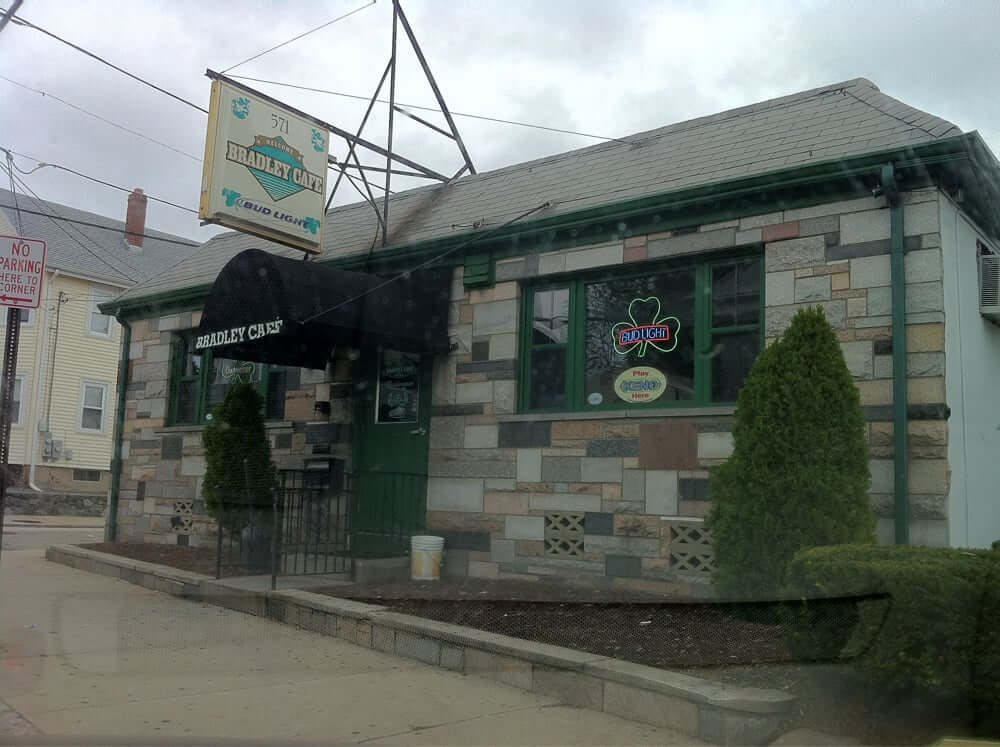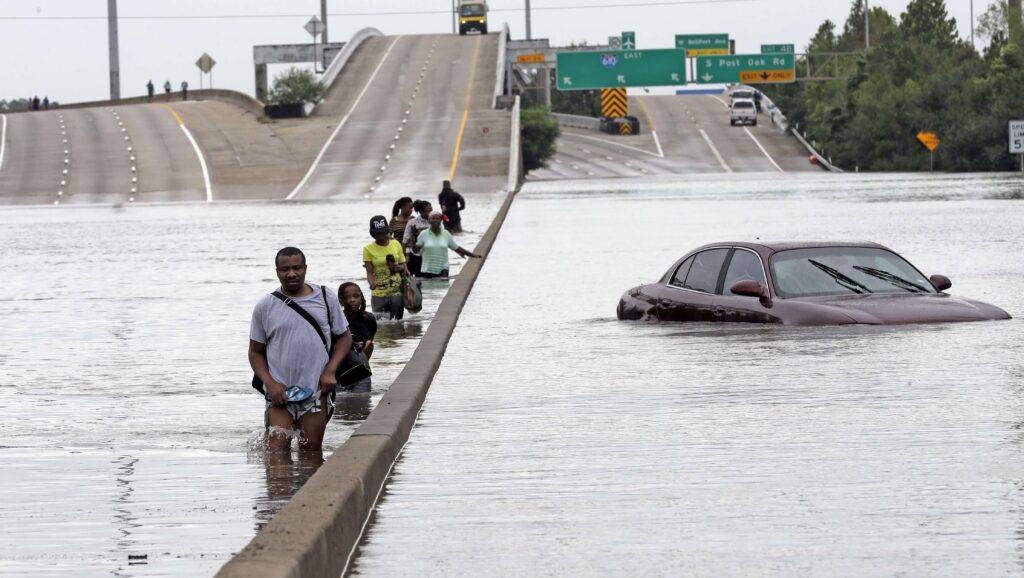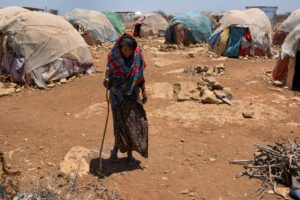Tag: Kelsey Dass ’18
Education Is a Right, Not a Privilege
by The Cowl Editor on October 5, 2017
Opinion

by Kelsey Dass ’18
Opinion Staff
Every child in America should be granted an equal opportunity to succeed, regardless of which state, city, race, religion, or gender the child associates with.
Coming from the perspective of a senior elementary and special education major at Providence College, it is time to think about where to land my first teaching job. The education I received in order to become a qualified and certified teacher cost, give or take, $250,000 without interest.
PC has a high-quality program that produces high-quality teachers. However, that often, but not always, means that those teachers will want to teach in schools that have some of the highest paying salaries.
Teachers who want higher paying jobs often end up in higher paying districts. Those districts can pay the teachers more because the taxes in those areas are higher. This often means that the incomes of those families in that specific district is on average, relatively high.
What quality of education are children in lower income areas receiving? There is no doubt that high-quality teachers do in fact teach in lower-income school districts, but that certainly does not make up the majority.
Children do not choose the life they are brought up in, and they are born into whatever family they have. The status of their family is not up to them, and there lies the problem.
Unfortunately, the frightening statistics do not lie. “Minority students are more likely to be taught by inexperienced teachers than experienced teachers in 33 states,” says a recent survey conducted by the New York Times.
There is something incredibly disturbing about this statistic. Each and every child should walk into a school and feel the quality of their education is just as good as their neighbor’s. They should be taught by professionals who have knowledge and passion in this field of work.
If certain areas do not have the capability to pay teachers higher wages, they certainly do not have the means to provide resources. You walk into some schools, and every student has a Chromebook. You walk into another school and there is one computer in the class that the students must share.
How is that just? How is that equal opportunity?
Did their families buy these Chromebooks? Absolutely not, but the taxes the families paid in the district certainly helped fund that resource.
On a national level, the New York Times reports that districts with the most students of color receive 15 percent less per student in state and local funding than the whitest districts.
The system is broken. As a nation, if we cannot figure out how to even the playing field, there is going to continue to be a major disparity. This disparity continues to damage the values of equality and liberty that this country was founded on.
Every child deserves an equal opportunity to learn. We will never represent the truest form of liberty until that happens.
PC Students: Innovators in Fundraising
by The Cowl Editor on September 21, 2017
Opinion

by Kelsey Dass ’18
Opinion Staff
Just as the population of students at Providence College represents a variety of interests—from musicians and athletes, to scientists and philosophers, to party-goers and homebodies—problem solving also can come in many different forms.
The variety of students’ passions and interests at PC allows for the opportunity to innovate and to take an unconventional approach to addressing many issues.
On Sept. 3, several seniors taking the course Management 401P Organizational Theory set out on a mission. In light of the recent hurricanes, these students decided to organize a relief effort for the victims of Hurricane Harvey.
Katie Rose Marvin ’18, a management major, deemed their project a huge success. She said, “It was a great event, and definitely ended up being more of a success than we thought. The initial goal was to raise $2,000 in one week. As a class we didn’t think it was possible, but the senior class proved us wrong. We ended up raising over $1,000 in one night. It was amazing to see our class come together to help the victims of Hurricane Harvey. Bradley Cafe was so supportive and wanted to help in any way. We were so appreciative of their support.”
This event was far from cookie cutter, and completely nontraditional with regards to Providence College events. With that I question how this Catholic-run institution, which does not support the student body party culture, feels about their student body helping people in need by using party methods?
Do nontraditional tactics not deserve equal recognition, simply because they do not follow the rules of whatever society you belong to?
Some may examine this fundraiser and place the creators in a single box. They chose to raise money at a bar so they must be “party goers.”
Providence College students are required to take the Development Western Civilization for two years so that they develop the ability to examine concepts, from a variety of different perspectives. These courses push us to move away from developing an opinion based on one angle. We must consider theology, literature, philosophy, and history prior to making a final conclusion.
This should be easily applied to our daily lives at this point. Those students were intelligent, creative, thoughtful, effective, innovative, and much more in how they chose to go about this event.
However, where is the school-wide email? Where is the well- deserved recognition?
The College should be applauding them for implementing the civic engagement they have been taught in a way that truly worked.
The students enriched the lives of so many victims with the money they raised. May we all value the effectiveness of their nontraditional platform, and deem it a true success.
Tangents and Tirades
by The Cowl Editor on August 31, 2017
Opinion

Hurricane Preparedness: Are We Doing Enough?
Twelve years after Hurricane Katrina and we are still asking: have we done everything possible to prepare for a hurricane?
With increasing levels of technology and improved hurricane tracking, we have become more aware of what to expect from these high-intensity storms. And with this awareness, decision-making by officials as well as citizens has been improving.
During Hurricane Katrina, many people did not understand the severity of the storm and continued to stay in their homes. After battling disastrous flooding, and being trapped in their homes without electricity, many people in New Orleans explained how they would have changed their choice to stay had they known what they would endure.
With that in mind, officials have made changes regarding how to advise those who will be affected by hurricanes. For instance, when enduring Hurricane Sandy on Long Island, New York, citizens were strongly advised to evacuate the island.
And while most of us are fortunate enough to have a safe place to go during a hurricane, what happens to those without homes in the first place?
As noted by New York Times writer Julie Turkewitz, the homeless in Texas are truly afraid. One such citizen, Roy Joe Cox, explained his fear for what lies ahead, saying, “I have no place to go and it’s going to get bad, I don’t know how I’m going to live through it.”
Although he found some shelter under a freeway, that does not protect him from flooding or debris that is picked up and thrown by heavy winds. All human beings should have the right to protection, including those without homes.
-Kelsey Dass ’18
Spare Parts Sparks Thoughtful Dialogue
Walking into a freshmen-filled classroom this past Friday, I was excited, but hesitant to begin the conversation.
Having agreed to help facilitate the Common Reading discussion as part of Providence College’s New Student Orientation, I had no clue whether the freshmen would be interested in their summer reading, Spare Parts, or if they would have even read any of it.
The inspiring underdog story of four undocumented high school students entering a collegiate level robotics competition encompassed a variety of themes. From immigration and education to citizenship and opportunity, I realized this might not be an easy dialogue to foster with new college students.
But in all honesty, I was extremely surprised by both the level of maturity and the sincerity of conversation from the freshmen I spoke with. Not only were they engaged with the controversial topic of immigration the novel centers around, but they were also receptive to each other’s different views.
By the end of the discussion, we had examined and shared different perspectives, stories, and perceptions of immigration within the United States, as well as what truths we believed we had gained from the book.
After having this discussion, I was reminded of PC’s own motto: Veritas. On the College’s website, a message from Father Shanley, O.P., explains, “…the College’s deepest mission is to teach its students to love and live in truth…”
Through the discussions promoted by the Common Reading Program, it seems this contemplation of truth is alive and well within the incoming class.
-Sarah Kelley ’18
Tangents and Tirades
by thecowl.opinion on May 4, 2017
Opinion

When Will Trump Learn?
This week Trump has taken another hit at women’s rights and efforts to alleviate global gender inequality. The administration has decided to discontinue “Let Girls Learn,” a signature girls’ initiative and educational program that has been especially championed since 2015 by former first lady, Michelle Obama.
This inter-governmental initiative run through the Peace Corps and the United States Agency for International Development was a testament to the importance of bipartisan multi-sectoral efforts in empowering marginalized women to reach their full potential through educational opportunities. Now it is just another reminder of the lack of support Trump continues to demonstrate towards women’s rights.
When will our president realize the importance of equality within our nation and throughout the world? Even within just his first 100 days, his lack of support for this initiative represents just one of the many instances where he has failed to support gender equality and women’s empowerment (from his global gag rule, legislation on federal funding toward Planned Parenthood, etc.)
And while his senior advisor and daughter, Ivanka Trump, has vocalized her intentions of prioritizing women and girls’ issues, the nation is still waiting to hear of any proposals she has to offer. How much longer can we stand to see this administration chip away at national and global efforts to promote equality? Only time will tell just how far the Trump Administration will let women’s rights fall by the wayside….
-Sarah Kelley ’18
Finals: An Unnecessary Evil
Why take finals? Most professors structure their classes to give two to three exams a semester. In addition, students are given consistent homework, projects, readings, and papers. In the course of one semester, students have numerous assignments are subject to be graded and said assignments are substantial enough to demonstrate that students’ knowledge of the subject.
Cumulative finals at the end of the semester are repetitive and stress-inducing. If a student does well throughout the course of the semester, then to assign a final exam worth a significant percentage of one’s grade is equivalent to setting students up for failure.
There is no sleeping during finals week, there is only studying and that in itself is detrimental to our grades. Many college students resort to taking different forms of drugs to stay up to study; others do not believe that it is physically possible to study the amount required and end up giving up on themselves.
If I have a good grade in a class, if I have done my fair share of work and have been a good student, then a final is nothing more than another opportunity to potentially bring my grade down in a class. It’s even more intense when more than one exam is on the same day.
Finals should be optional; they should be an opportunity for those who want to bring their grades up to do so. Those content with what they possess should not have to endure that week of stress, anxiety, and sleeplessness. One of the biggest issues on college campuses is that students are overwhelmingly anxious, and finals week only exacerbates a college student’s anxiety.
-Laura Arango ’20
Justice For Unpaid Interns
What is our time worth?
As the school year comes to a close, Providence College students scramble to finalize their plans for the summer. Some are returning to old summer jobs, a few students are traveling, and a large percentage of students are entering into the “world of interning.”
The internships that catch my eye are contrary to what one would think. You see, they are not the ones with the intriguing titles and detailed descriptions. Nor are they the ones that require the most work, such as research, portfolios, and final summer projects. They are the ones that pay.
Unpaid internships are a concept that I find slightly demeaning and unfair. College students can barely afford meals at the end of a semester, but we expect them to commit to an unpaid internship for the entire semester so that hopefully the experience makes them a prime candidate for the job.
In an unpaid internship a student is almost always doing exactly what a paid interns does. However, the company that decides the internship is unpaid, is making a claim that the work the student is doing is not even worthy of minimum wage. Students should feel respected for doing what they can to get their foot in the door of the working world, not discouraged.
Unpaid internships tell the student that the time he or she gives up in order to be in that learning environment, is worth nothing.
Unpaid is unfair. We may be students, but our time is worth something, not nothing.
-Kelsey Dass ’18
Freedom in Feminism: The Fair Choice
by thecowl.opinion on April 27, 2017
Opinion

by Kelsey Dass ’18
Opinion Staff
It is not about what you do; it is about what you want to do.
Since the feminist movement of 1960s and ’70s, society’s ideas regarding feminism have changed ever so frequently. Every person will define feminism as something different. Many say it is equality among genders, others say growth in career, and some, including actress Emma Watson, believe it is about choice.
We have seen continuous growth in feminism since the ’60s. However, I believe that we are approaching some obstacles that have begun to slow our momentum—first among those obstacles being the media.
The feminist era of the ’60s and ’70s was a time of liberation and advancement for women’s equal rights and thought. The women of this era were not solely fighting for their personal rights. They were fighting for their daughters’ and their grandaughters’ rights, so we, modern-day females, could grow up in a world where we had the same possibilities as our brothers.
The women of this movement made choices that they felt reflected their independence. One of the most famous choices was the “Bra Burning,” where women would congregate and light their bras on fire, or simply walk around wearing no bra at all. This action truly opened up the focus on the need for change. They desired to break the stereotype that kept their societal roles in a confined box.
This box looked a lot like marrying young, caring for children, and supporting their husbands. I am not suggesting that caring for and supporting a family is not an admirable life, because it most certainly is.
It is not about what you are doing exactly; it is about having the freedom as a female to make those choices on your own.
The media has grown dramatically over the past forty years, and while propaganda and biased opinions existed during the feminist movement era, it is completely different now. The biggest crime now is that people within the media have utilized their freedom in order to take certain ideals out of context.
Watson, a well-respected feminist, was recently featured on the cover of Vanity Fair. Media critics expressed their disappointment in her choice to pose for a revealing picture and stated that she “betrayed her feminist ideals” by doing so.
When people in media make these statements, they undo a little piece of the hard work done by the female activists of the ’60s and ’70s. They draw a tight box around us, and tell us and the rest of the world that we were wrong for stepping outside of it.
What she did certainly has nothing to do with feminism. As Watson noted, “Feminism is about giving women choice.” She was not forced to do that cover, she wanted to.
The problem with the media is they take one image with of what feminism looks like, and they publicize that image. They provide that single image enough positive reinforcement to make it “the law” in the minds of the people.
Therefore, when a respected feminist brings a different image to the table, they are criticized. Rather than make adjustments to revolutionize their thinking, they make irrational comments in order to distort the image, because it does not fit in their box.
While Watson’s cover on Vanity Fair was revealing, this also does not suggest that feminism is ostentatious. Feminism can be conservative, it can be boisterous, it can be quiet, it can be covered in clothes, and it can be completely naked.
Our feminist mothers and grandmothers wanted us to know that we have the choice to be whatever we want to be.
We have the choice—to be a feminist and to be ourselves.
Politics Vs. Principle
by The Cowl Editor on April 6, 2017
Opinion

by Kelsey Dass ’18
Opinion Staff
“Politics without principle,” is one of the seven dangers to human virtue, as noted by Mahatma Gandhi. It is a danger we have come head to head with at this very moment.
Somalia, Nigeria, South Sudan, and Yemen are four countries currently under severe distress. With the combination of a serious drought, as well as several small wars occurring, life has become unlivable.
As a country, we are at a crossroads. President Trump is urging Congress to cut foreign aid as well as assistance to the United Nations. However, there are 20 million human lives at stake and, without assistance, the number could double or even triple.
What would Gandhi do?
Environmentalists are saying that they have not seen a drought this bad in almost 60 years. With the intensity of this drought, not only has water become less accessible, but costs have increased dramatically. Amongst such countries in Africa, where clean water is not free or readily accessible, this sort of crisis only exacerbates the dire situation. Due to the fact that clean water has risen in price, many citizens are forced to utilize contaminated drinking water and face hygienic challenges as well. Now, the people of these countries are suffering from diseases and infections from this dirty water.
The warring people in these countries do not help the famine either. Not only does war endanger the lives of people, but it also physically destroys markets and communities that provide access to food and water. The collateral damage has left the people of these countries dehydrated, malnourished, and fighting to stay alive.
President Trump wishes to decrease foreign aid and contributions to the United Nations in order to put money back into our country and our needs.
In reality, the idea of putting more money back into our own economic cycle sounds right and much needed. This is politics.
However, what does this say about Americans? Who chooses to turn their back on the lives of 20 million human beings, dying from the most intense famine we have seen in year? This is the principle.
I am not suggesting that throwing money at this situation is going to make the problem go away forever. Because it simply wouldn’t—it would act as a small Band-Aid, providing quick relief that exists on a short term scale. If we want to make a true difference in the lives of those of the global Southeast, we must recognize the interconnections we have with such countries, which is the hardest part.
This is not the first famine that countries of Africa have seen. In fact, we have seen the poverty and hunger time and time again. From the advertisements on television, calling for a dollar a month to provide clean water in a village, we know it all too well. However, why do we not question why those countries do not ever reach stability? With all of the support, all of the money, they should have already reached stability. So, where is the gap?
The gap lies among the ideals of “us” and “them.” American society has yet to push us to examine the connections between “us” and “them.” We can not see that the horrific droughts wiping out these countries are directly correlated with rising levels of pollution in our planet.
It is not the four countries being affected by the drought that contribute to these vast levels of global warming. It is us.
Just in America alone, our contribution to industrial pollution is astronomical. Factories and cars are so much a part of our lives that we don’t even think of it as pollution.
If we ever want to move out of the cycle of famine, it is essential to recognize that every action we take directly affects another human being in another place. There is no denying that our countries are interconnected. The sooner we realize that and act on it, the sooner the long term goals of eliminating famine and decreasing foreign aid can be achieved.
Redefining American Values
by The Cowl Editor on March 16, 2017
Opinion

by Kelsey Dass ’18
Opinion Staff
This land is your land; this land is our land?
As President Donald Trump begins his time in office, many new decisions and policies are being made. This includes his decision regarding the Dakota Access Pipeline. The Standing Rock Indian Reservation, which straddles the boarder between North and South Dakota, established in 1868, is forever changed with the decision by our president to move forward in using Dakota for natural gas pipelines. The question this action raises: what do we value as a country?
Our country’s foundation is supposed to stand on the rights to religion, speech, equal justice, and private property. However, in drilling a hole through the Standing Rock Indian Reservation, we take away these rights for Native Americans.
The concept of drilling holes and striking oil might sound like a good idea. When we think of oil, we think of money. Having this type of accessibility to natural gas in our own territories would be a huge financial gain.
However, this pipeline would seriously violate some of these American rights. One of the biggest concerns is how this pipeline could affect drinking water. If the pipeline has any type of leak, even a small one, this could majorly affect the water the tribe has access to. Another issue regards the religious grounds that the reservation exists on. The people of the Sioux tribe feel that this pipeline will disrupt their sacred burial ground.
The truth of the matter is that one does not need to understand that the Sioux tribe feels this ground they live on is sacred. It is not the easiest concept to comprehend for people who did not grow up on a reservation, understanding its morals and customs. However, if we choose not to value their personal principles, then we choose not to value human rights like equality, religion, private property, and freedom.
Taking an economic look at the situation, it is understandable why accessing the pipeline would be so profitable. The United States would see around $2 billion in economic benefits. The amount of money could be extremely positive and put our country into a better place financially.
Nevertheless, the United States is not solely based on money, and such decisions cannot be made through one economic lens. The scope of the field needs to include the consequences such actions may have on people.
When President Donald Trump signed the Keystone pipeline re-negotiation, he said it would provide “A lot of jobs, 28,000 jobs, great construction jobs.”
What is interesting though, is that he chose not to discuss the close relationship he has with the Energy Transfer Partners (ETP). The ETP, which is a natural gas and propane company, will profit significantly if the Keystone pipeline goes into effect, which Trump would know considering he holds stock in that company.
The president values jobs, which is great, but it means nothing if he cannot value all people. When he was questioned about the Standing Rock Indian Reservation, he chose to not comment, again de-valuing the people who have called the reservation home for generations.
Trump has placed his focus on economics, profit, and growth in industry. These are not negative ideals. However, because he has so purposefully neglected other important aspects of the situation, in the grand scheme of things, he is actually more deeply de-valuing human beings than he is valuing the economy.
Trump Looks To Trim FDA
by The Cowl Editor on February 20, 2017
Opinion

By Kelsey Dass ’18
Opinion Staff
Where should we start?
With the hustle and bustle under President Trump, there are a lot of administrative changes being made. As Americans watch the evening news during dinnertime, they may be paying more attention to the headlines than what is on their own plates. However, the Trump administration has as much of an effect on the food we eat as it does on foreign policy and immigration. Therefore, it is time we turn our focus on the Food and Drug Administration (FDA).
The FDA exists on a large scale; its responsibilities range from making sure that pharmaceutical drugs to dietary supplements to vaccines are safe. In relation to foods, its job is to protect and promote public health through the control and supervision of food safety.
When shopping in groceries stores, we often scan the aisles and feel at ease when picking up a product that is stamped “FDA approved.” The belief is ingrained in our minds that the FDA is our protection against foods that are not up to standard. Sounds good enough, right?
The problem lies in the standard. Our general standards for food set in place by the FDA are already lower than those in European countries. The EU recently passed more regulations on food, requiring an updated “food labeling rule.” They now ensure that customers receive accurate and clear information on food content in order for European citizens to make informed choices on what they purchase.
This all may seem very simple—the food in America is labeled too. Yet, to what degree? In 64 countries, including in the EU, there are restrictions and bans on genetically modified products or “GMOs.” The United States does not require the labeling of these types of products. Much of the food put in supermarkets contains GMOs, has come in contact with pesticides, and is pumped with hormones, yet is still labeled as FDA approved. It is concerning that Americans are putting their trust in this federal administration, empowered by the United States Congress, when it appears that they are not doing enough work to keep us safe.
One would hope that with the new presidency, regulations on food would increase. Following the “Make America Great Again” campaign, should bettering the country not involve making the food safer as well?
Unfortunately, President Trump is doing just the opposite by lowering the regulations on food even more than they are now. One of the specific regulations planned to be eliminated is The FDA Food Police, which dictates how the federal government expects farmers to produce fruits and vegetables and even dictate the nutritional content of dog food.
The rules govern the soil farmers use, farm and food production hygiene, food packaging, food temperature, and even what fields animals may roam and when. They also have greatly increased inspections of food facilities and levied new taxes to pay for this inspection overkill.
The FDA creates its standards based on a person telling them what the standards should be. The FDA is not God, and cannot protect us. They listen to their leaders; they do what they are told. Their job title may read “to protect and promote public health,” yet to the degree they do so is completely up to the government.
Our government is now run by a person who does not have a moral obligation to ensure the safety of our foods. Did people think about this factor when casting their vote? Did they think about raising children in a world where the food they purchased is masked by a blanket of dishonesty?
Illness will rise once people begin ingesting more foods covered in pesticides, and the people of this country will realize that “FDA approved” no longer means anything.
Not A Good IDEA
by The Cowl Editor on January 26, 2017
Opinion

by Kelsey Dass ’18
Opinion Staff
In order to be an educator in the United States of America, one must have an undergraduate degree, pass teacher certification exams for the specific state they are interested in teaching in, and receive a master’s degree in order for the certification to remain valid.
Some would say that educators jump through hoops in order to work in this profession, and I would have to agree, for good reason. It is essential for the future of our country to have educators that are both qualified and experienced, so that in turn, they help improve the education of our children. Seems simple, doesn’t it?
However, Donald Trump’s nominee for secretary of education, Betsy DeVos, appears to lack background and knowledge in the field of education.
DeVos was recently nominated by President Trump for the position of Education Secretary. She has a vast wealth, which she has used to advance ideas important to her. She is also a member of the Republican Party and, when it comes to education, she is known for her support on the matter of school choice.
From what she has publically displayed, it is evident that she advocates for children and is interested in making changes that help better the education of children. In regards to the business of education, we certainly need someone strong to lead in that regard.
DeVos demonstrates an ability to lead the business side of education, which is important. Yet, she lacks the ability to grasp the mission of education, which is to educate. She has no experience, background, or knowledge in education, and I find this quite concerning.
In the Senate confirmation hearing that was held on Tuesday, January 17, DeVos failed to represent her understanding of the education system, including the specific details that come along with it. When Senator Franken asked DeVos to discuss her views on proficiency versus growth, meaning, giving students assessments, and using those assessments to either focus on measuring proficiency or growth, she did not appear to understand how to answer this question and failed to express her viewpoint.
Personally, in watching the hearing myself, the controversial topic between proficiency and growth did not seem to even be on DeVos’ radar of knowledge. Senator Franken comments to her directly that, “It surprises me that you don’t know this issue,” making clear his disappointment with the candidate’s lack of knowledge.
Sadly, this was not the only unfortunate event of the hearing. When Senator Tim Kaine questioned DeVos on the Individuals with Disabilities Education Act, the candidate explained that she thinks, “That’s an issue that’s best left to the states,” which is just not a logical answer, considering that IDEA is a federal law.
In saying this, she suggested by her answer that she was willing to ignore the federal requirement by giving this issue to the states.
When the question on IDEA came back to her again from Senator Maggie Hassan, she attempted to explain why she failed to comprehend the question regarding IDEA the first time by mentioning that she “may have gotten confused.”
I do not accept “confusion” as a worthy answer considering the high caliber of this job. There were other instances during the hearing in which DeVos remained unclear, such as her views on whether or not guns should play a role in or around schools.
The issues discussed are critical to the educational system of the United States. DeVos’ inability to understand and evaluate these issues demonstrates a disapointing lack of intellectual ability and passion.
Unfortunately, I have little confidence in DeVos’s ability to provide leadership as the secretary of education. Yet, I am hopeful for the future. Many educators in this country continue to strive every day in order to provide a quality education for their students. My hope is that their experience, knowledge, and passion for teaching students will exceed the lack of leadership above them.
